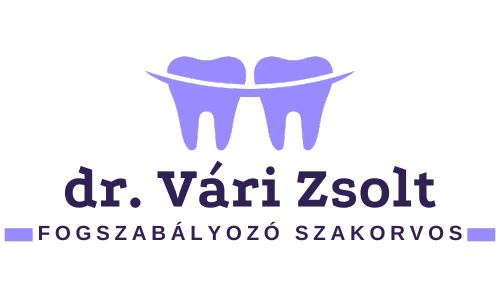Removable Appliances
As the name suggests, removable appliances can be taken out of the mouth and are mainly used during mixed dentition—when both baby and permanent teeth are present. They need to be worn for 10-12 hours a day, but usually, nighttime wear is sufficient.

Guiding Jaw Growth and Early Dental Correction
There are three main types of removable appliances: active plates, passive plates, and functional or bimaxillary appliances, including silicone trainers. Their purpose is to guide jaw growth and improve tooth alignment, creating a more functional and aesthetically pleasing smile. Untreated conditions can worsen, leading to aesthetic and dental problems like decay, gum recession, or TMJ issues. The choice between removable and fixed appliances depends on the dental issue and patient’s age, as determined by the doctor.
The purpose of removable appliances is to promote proper jaw growth and occlusion. Aligning the teeth in a correct (crowding- and gap-free) arch is the task of fixed appliances. In most cases, treatment with removable appliances is a preliminary step before using fixed appliances. However, their importance should not be underestimated, as they can correct irregularities that may be more difficult or time-consuming to address with fixed appliances later.

Types of Appliences
Active Plates
Active plates typically contain one or more screws, primarily used to expand the dental arches. In contrast, passive plates never have screws and are generally used in the retention phase of orthodontic treatment to maintain the results achieved. After removing fixed appliances, the teeth are not yet fully settled in their final positions and tend to move, so wearing a retention plate for 3 years at night is necessary. This allows for the adaptation of periodontal fibers and the formation of solid bone around the tooth roots.
Passive Plates, Retention Splints
Passive plates do not contain screws and are usually applied after treatment with fixed appliances, CA, or Bioaligner, to retain the achieved results. The removal of fixed appliances does not mark the end of orthodontic treatment! Since the teeth are still mobile, retention plates must be worn every night for up to 3 years to allow the fibers in the periodontal tissue to remodel and solid bone to form around the roots, ensuring the results are maintained and the teeth remain stable.
Bimaxillary Appliances
Functional or bimaxillary appliances form a distinct group within removable orthodontic devices. They cover both dental arches and simultaneously affect both the upper and lower jaws. Specifically, they modify the relationship between the two dental arches or jaws, primarily in the sagittal and vertical planes, and to a lesser extent in the transverse plane. These appliances can influence the growth rate and direction of the jaws. However, this significant tissue remodeling effect can only be achieved during active growth. Adolescence, particularly its early stage, is ideal for growth correction.
Anti-Snoring Devices
Snoring causes shallow sleep, and the resulting lack of rest leads to daytime fatigue, irritability, and general low mood. It also disrupts the sleep of the spouse or others in the room. Snoring occurs because relaxed soft tissues and muscles in the mouth, nasal cavity, and throat, along with a backward-moving jaw, cause narrowing. Air passing through this narrower space creates turbulence, leading to the vibration of soft tissues. Devices prevent snoring by moving the jaw forward, tightening muscles, and countering its root causes.
Frequently asked questions
Answers to Your Most Common Orthodontic Questions
Why is it important to wear the removable functional appliance regularly every night during teenage years?
Wearing a nighttime or functional orthodontic appliance regularly helps ensure that the teeth and jaws move into the correct position and removes any barriers to proper growth. This is especially important during puberty, as the jaws are still growing, and the appliance can help prevent or correct bite issues such as deep bite, open bite, overbite, or crossbite.
What problems can removable orthodontic treatment solve during puberty?
Removable orthodontic treatment can help correct growth issues like deep bite (where the upper teeth excessively cover the lower teeth), protruding teeth (where the teeth stick out too far), or crossbite (where the upper and lower arches don’t align properly).
What happens if I don't wear the removable appliance as instructed by the orthodontist?
If you don’t wear the removable appliance regularly, the treatment will be less effective, and the teeth or jaws may not develop properly. This could delay improvement or even lead to a relapse, resulting in longer treatment and potentially more severe dental issues in the future.
How long should I wear my removable appliance each day?
The orthodontist will recommend how long to wear the removable appliance each day, typically between 8-16 hours, including nighttime wear. The exact duration depends on the position of the teeth and jaws and the treatment goals.
Why is it sufficient for teenagers to wear a removable appliance only while sleeping, whereas other removable appliances need to be worn all day for effectiveness?
During adolescence, sleep is crucial for growth and development, as growth hormones are released into the bloodstream at night. This makes nighttime wear of the removable appliance effective, as bone remodeling is accelerated during sleep. Due to the intense hormonal activity and growth processes, the appliance can efficiently support the proper growth of teeth and jaws.
Other types of removable appliances require constant mechanical force, so daytime wear is necessary to maintain pressure on the teeth and continuously move them into the desired position through bone remodeling.
Get an appointment!
Book the first consultation where we can discuss which orthodontic appliences suits your needs best.







